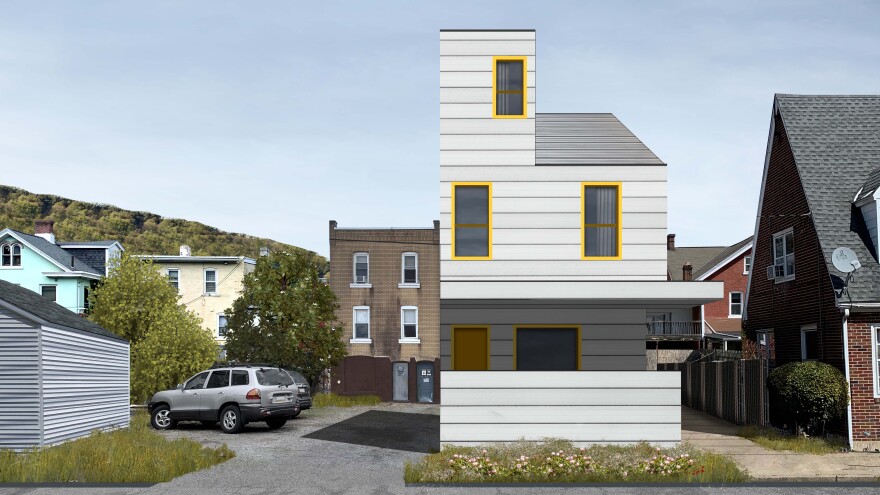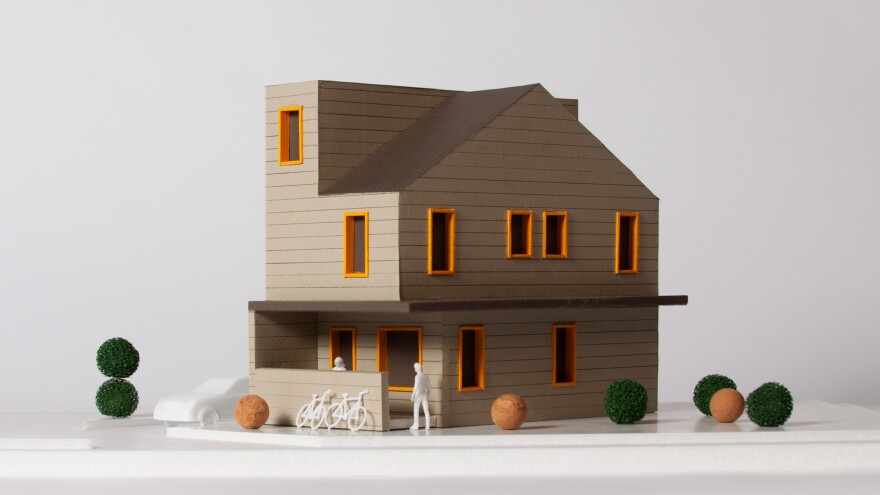BETHLEHEM, Pa. — As the city moves to implement its affordable housing strategies, officials on Tuesday discussed the ins and outs of a lower-volume, more historically common option seen locally: accessory dwelling units.
Following a 5-2 vote — with Councilwoman Grace Crampsie Smith and Councilman Bryan Callahan dissenting — Woodsong Associates, of Portland, Oregon, will partner with Bethlehem and Lehigh University to research ADU zoning reform nationwide, draft potential zoning amendments and help gather public discourse in the city.
The contract is valued at $65,000 — with $40,000 in Lehigh University research funding and $25,000 from a Pennsylvania Housing Affordability and Rehabilitation Enhancement Fund grant.
ADUs and “alley houses” can take form as a third floor added to an existing home, basement conversion, garage renovation or even a small cottage, offering a lower-profile option to make a dent in the housing crisis.
Currently requires special variance
As it stands, city ordinance doesn’t allow ADUs in any of Bethlehem’s zoning districts without a special variance from the Zoning Hearing Board. Mayor J. William Reynolds said hundreds of the units across the city were grandfathered in when the current zoning code was adopted over a half-century ago.
The mayor said the approved agreement will be a technical study to help officials determine minimum lot size required, setback specifications and more. It also allows Lehigh and the city’s Planning and Zoning Office to take a seat and focus on other work at hand while still being part of the conversation.
As it stands, city ordinance doesn’t allow accessory dwelling units in any of Bethlehem’s zoning districts without a special variance from the Zoning Hearing Board.
Some possibilities for zoning reform include creating natural incentives in the city zoning code for ADUs, expediting permitting processes or offering cost-reduction options for the masses who may want to convert their garage or other structure, according to Laura Collins, city director of community and economic development.
Officials have estimated 15-30 ADUs to be built in the coming years if everything goes to plan — but that’s not set in stone.
“I would say any numbers and things like that are just conceptual, and right now, people know how they want these programs to work theoretically as far as affordability is concerned, but not necessarily what any type of incentive packages would look like,” Reynolds said. “And it’s connected to the conversation we often have about how expensive it is to build — that if you want to do affordable housing, you need to subsidize the developers.”

'Not a magic bullet'
Council President Michael Colón, who supported the contract, said he lives near a couple of ADUs himself.
“This isn’t something new; this is also not a magic bullet,” Colón said. “As we talk about affordable housing and implementation strategies and doing this and doing that, it’s all comprehensive.”
“I just think the possibility of changing the zoning anywhere in the city, as far as residential single-family homes, is a slippery slope that I do not want to go down."Bethlehem City Councilman Bryan Callahan
Researchers can always find a way to manipulate a study in order to keep getting contracts with the city, Callahan said.
“I just think the possibility of changing the zoning anywhere in the city, as far as residential single-family homes, is a slippery slope that I do not want to go down,” Callahan said.
'Responsible fiscally'
Prior to the discussion, Councilwomen Kiera Wilhelm and Hillary Kwiatek — who are both Lehigh employees — decided to recuse themselves from the vote.
Sharing her legal opinion and referencing city ordinance, City Council Solicitor Stephanie Steward said officials aren’t allowed to vote on matters where they have a personal financial interest — and this case “does not lead to a benefit specifically to them as employees of Lehigh University,” she said.
Councilwoman Colleen Laird said, “All we have right now is proposals, ideas and concepts. So I think that spending a small percentage to do further research before making any changes is responsible fiscally and in terms of thinking about the character of our neighborhoods.”
The contract money would be better spent on waiving associated fees for homeowners or handling ADU construction costs, said Crampsie Smith.
“I would rather have the money go directly to services to help the people that need it."Bethlehem City Councilwoman Grace Crampsie Smith
“I would rather have the money go directly to services to help the people that need it,” Crampsie Smith said.
A resident of South Bethlehem, Councilwoman Rachel Leon said one ADU near where she lives is being rented out at a price that just isn’t seen elsewhere in the city.
She agreed it was prudent to do more research.
“I know [ADUs] work in my community because I live in my community and I see them work in my community,” Leon said. “I don’t know if they work anywhere else.
“And as a councilperson, I don’t want to make a decision based on, ‘I feel like it’s not going to be good here.’”

Seen nationwide and locally
Collins said the bulk of the ADU research she’s seen involves cities out West, meaning further understanding of the nuance here locally is crucial to the housing mission.
“It’s getting a lot of attention because it’s really a model that, if successful, could be replicated in a lot of places,” Collins said.
To avoid investors flooding the city’s ADU market and instead bring power to the homeowner, Collins said, one potential provision could include requiring the owner of the land to live on that parcel — whether it’s in the main house or the ADU.
“It’s getting a lot of attention because it’s really a model that, if successful, could be replicated in a lot of places."Laura Collins, director of community and economic development, who said the bulk of the ADU research she’s seen involves cities out west
Collins said other funding sources, such as Community Project Funding, would be put toward ADU development costs.
Separate from the research mentioned above, Lehigh, Community Action Lehigh Valley and New Bethany have been working on an alley house pilot program.
The groups plan to build a two-bedroom, 740-square-foot alley house behind 1604 W. Broad St. The Zoning Hearing Board approved that project in the spring.
There are alley homes all across Bethlehem, including the Southside at Morton and Laufer streets, as well as the West Side at Franklin Alley and Raspberry Street, for example.


